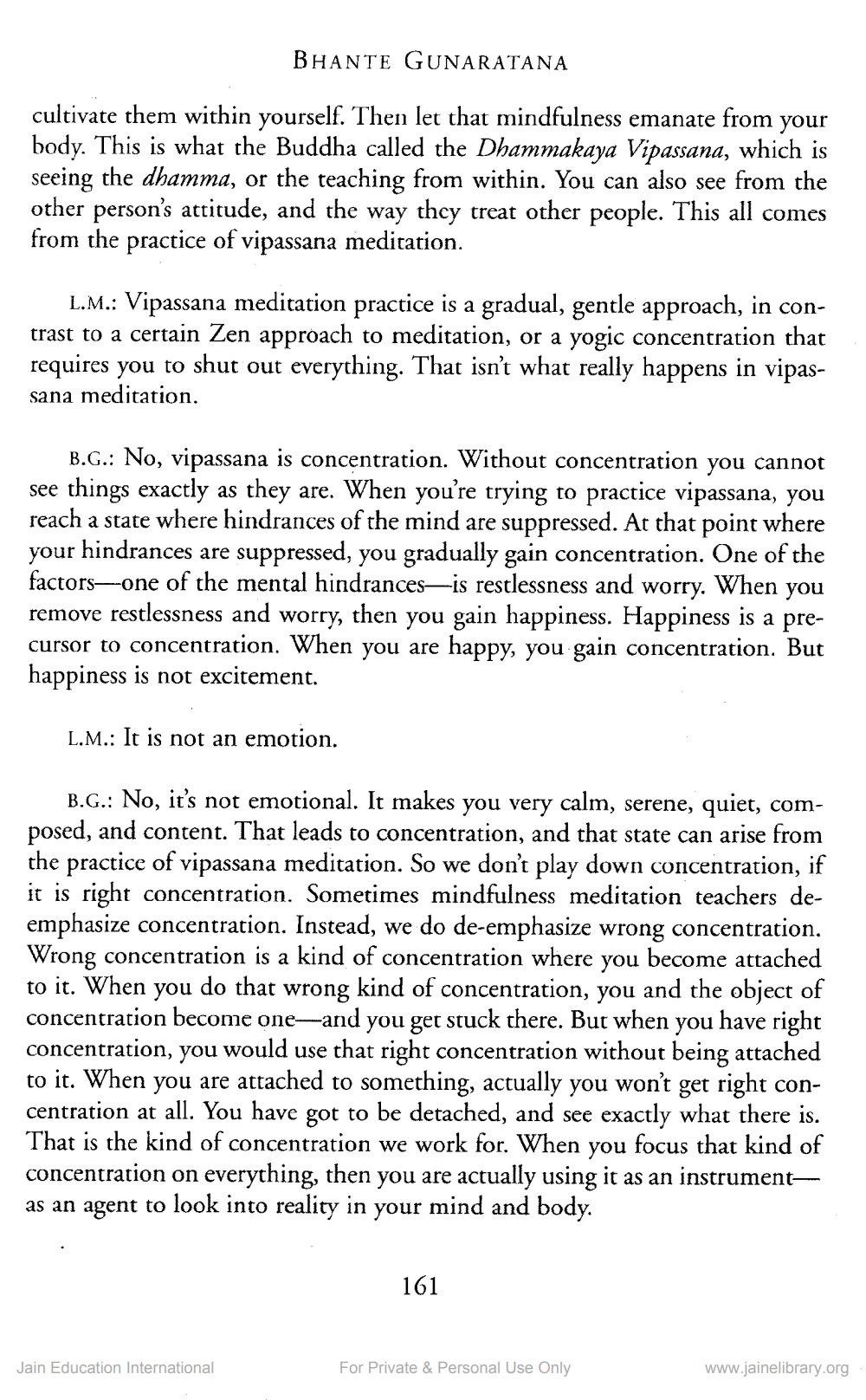________________
BHANTE GUNARATANA
cultivate them within yourself. Then let that mindfulness emanate from your body. This is what the Buddha called the Dhammakaya Vipassana, which is seeing the dhamma, or the teaching from within. You can also see from the other person's attitude, and the way they treat other people. This all comes from the practice of vipassana meditation
L.M.: Vipassana meditation practice is a gradual, gentle approach, in contrast to a certain Zen approach to meditation, or a yogic concentration that requires you to shut out everything. That isn't what really happens in vipassana meditation.
B.G.: No, vipassana is concentration. Without concentration you cannot see things exactly as they are. When you're trying to practice vipassana, you reach a state where hindrances of the mind are suppressed. At that point where your hindrances are suppressed, you gradually gain concentration. One of the factors one of the mental hindrances—is restlessness and worry. When you remove restlessness and worry, then you gain happiness. Happiness is a precursor to concentration. When you are happy, you gain concentration. But happiness is not excitement.
L.M.: It is not an emotion.
B.G.: No, it's not emotional. It makes you very calm, serene, quiet, composed, and content. That leads to concentration, and that state can arise from the practice of vipassana meditation. So we don't play down concentration, if it is right concentration. Sometimes mindfulness meditation teachers deemphasize concentration. Instead, we do de-emphasize wrong concentration. Wrong concentration is a kind of concentration where you become attached to it. When you do that wrong kind of concentration, you and the object of concentration become one-and you get stuck there. But when you have right concentration, you would use that right concentration without being attached to it. When you are attached to something, actually you won't get right concentration at all. You have got to be detached, and see exactly what there is. That is the kind of concentration we work for. When you focus that kind of concentration on everything, then you are actually using it as an instrumentas an agent to look into reality in your mind and body.
161
Jain Education International
For Private & Personal Use Only
www.jainelibrary.org




